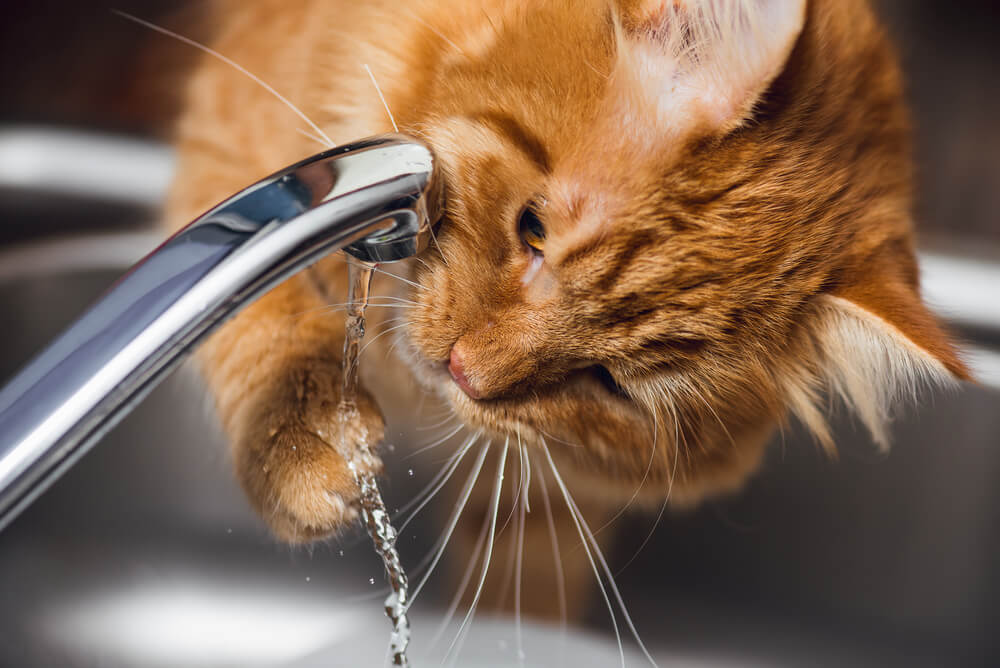
Disciplining a dog is relatively straightforward, and if you’re struggling with a disobedient hound, there’s plenty of advice out there on the internet.
Cats, however, are a whole different breed. They’re fiercely independent and have no time or patience for being ordered around, and that’s why we love them.
But if your cat’s causing problems with biting, scratching or other behavioral issues, there are ways to deter them through discipline.
To help you if you’re struggling with a disobedient feline, we have some tips and tricks on how to discipline your cat.
Firstly, and most importantly, you must never physically hit, smack or shake your cat at any point, but especially when attempting to correct behavior. It will result in them being scared, cause them harm and lead to them becoming fearful of you.
Similarly, don’t use spray bottles to deter your cat from doing things they shouldn’t — your cat won’t make the link with being sprayed with what she’s done wrong, or even that being sprayed is a negative thing.
How to stop a cat biting, chewing or inappropriately playing
If you’re playing with your cat and they get carried away and start nipping or scratching, stop the game immediately and don’t pay any further attention to them. This can, over time, reinforce the message that what they’re doing is inappropriate and won’t be tolerated.
Similarly, if they’re scratching or biting an item of furniture, you can redirect their attention to one of their toys, which they will hopefully begin to realize that they should scratch that rather than your sofa.
Blowing a whistle or using a loud noisemaker can also help deter cats from chewing things they shouldn’t.
The other option many people use when scratching and biting becomes a problem is a scratching post. Rub it with catnip, and make it interesting by playing with a toy around it, and your cat should eventually transfer their interest from the furniture to the scratching post.
Praise them when they get something right
Cats react to praise rather than punishment, so vocally praising them when they do something you want to encourage and rewarding them with treats both help to reinforce good behavior. By encouraging this, they’ll eventually make the connection between the reward and positive behavior.
The more time you spend with your cat rewarding and praising good behavior, the more your cat will link this behavior to good things, and continue to display behaviors you want them to, rather than more negative displays.
Don’t engage with your cat if they’re acting aggressively
We mentioned this earlier, but if your cat is acting aggressively, the best way to deal with it is to remove yourself from the situation. If your cat is acting in this manner, it’s most likely because they’re scared or feeling stressed or anxious, so it will help to decipher the cause of the issue.
One thing you should not do though is shout or respond with force. Equally, do not pick up your cat if they’re angry as this can increase their irritability. Changing your tone of voice is enough — a firm “no” has a much more positive effect. Use the same tone each time and your cat will begin to realize
Spend more time with your cat
A simple way to eradicate behavioral issues is to spend more time with your feline friend on a daily basis. Giving them attention, pampering and playing games with them often means they receive the attention they’re craving and, as a result, will begin to calm down
We uphold the highest editorial standards when creating the authoritative content pet parents rely on and trust.
Every piece of clinical content on the Cat Food Advisor is reviewed by our certified Veterinary Advisory Board, which consists of licensed veterinarians and medically certified specialists.
Our reviews are completely independent; we are not paid by any pet food company to promote their products favorably. We do not accept money, gifts, samples or other incentives in exchange for special consideration. For more information see our Disclaimer & Disclosure page.










